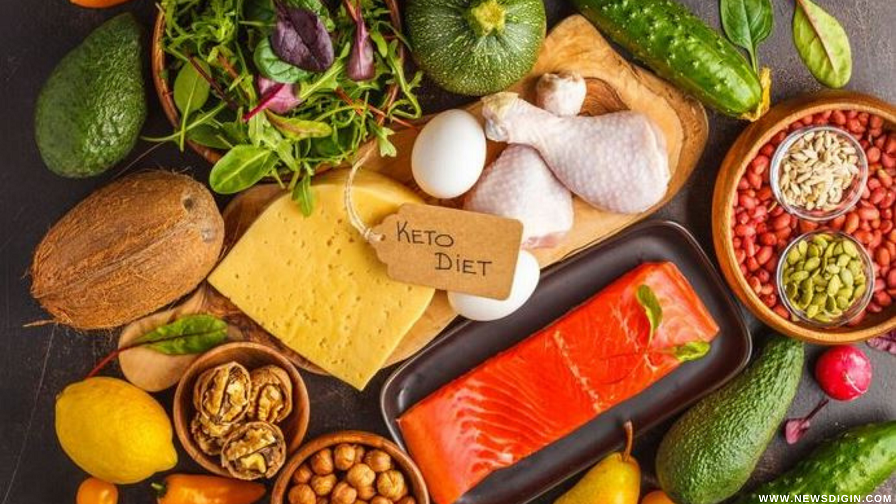
Keto Diet | Some Key Facts About Keto Diet: A low-carbohydrate diet is called a ketogenic diet (like the Atkins diet). As a general rule, you should consume more calories from fats and proteins and fewer calories from carbs. Sugar, pastries, and white bread are the carbs that are easiest to digest.
Keto Diet | Some Key Facts About Keto Diet

What It Does?
You run out of fuel (blood sugar) if you consume less than 50 grammes of carbs per day. This process usually takes minimum three to four days to complete. Your body will begin breaking down protein and fat for energy, causing you to lose weight as a result.
Ketosis is the name given to this state. Note that the ketogenic diet is a short-term weight loss diet rather than a long-term health-promoting one.
This Diet Uses By Whom?
People use a ketogenic diet mostly for loosing weight, but it can also help manage certain medical conditions, such as epilepsy and certain types of cancers.
Certain brain diseases and acne may also benefit people with heart disease, but more research needs to be done. Especially if you have type 1 diabetes, check with your doctor first to see if it’s safe to try a ketogenic diet for you.
Weight Loss Diet Plan
You may lose more weight on a ketogenic diet in the first 3 to 6 months than you would on other diets. A possible reason for this is that it takes more calories to convert fat into energy than converting carbs.
Perhaps a diet high in fat and protein makes you more satisfied, so you eat less, but this hasn’t been proven yet.
Exercise
Runners and cyclists, for example, may benefit from a ketogenic diet when they are preparing for competitions. As a result, over time, your body’s muscle-to-fat ratio improves, and the amount of oxygen it can use when it’s working hard increases.
If one is looking to perform at the best, this diet may not be the best choice.
Consequences
Constipation, mild hypoglycemia, or indigestion are all possible. Diets low in carbs are less likely to cause kidney stones or high acid levels in the body (acidosis). The “keto flu” (headache, weakness, and irritability), bad breath, and fatigue are other possible side effects of the diet.
Choosing A Diet With Care
When your body burns its fat reserves, it can put a strain on your kidneys and cause them to malfunction. In addition, if you’re obese and have diabetes, a heart condition, or high blood pressure.
Starting a ketogenic diet — or going back to a regular diet afterwards — can be challenging. Changes in your diet should be made slowly if you have any of these conditions.
Read Also: